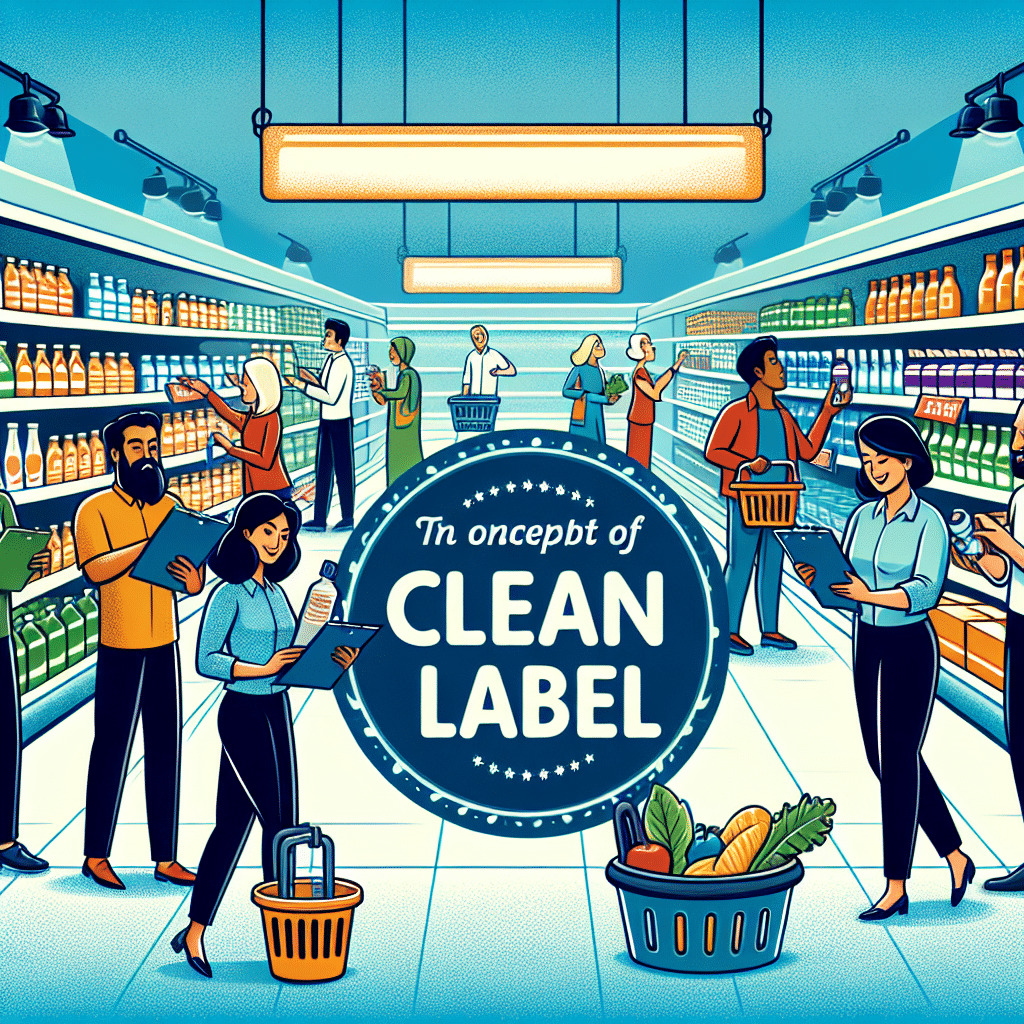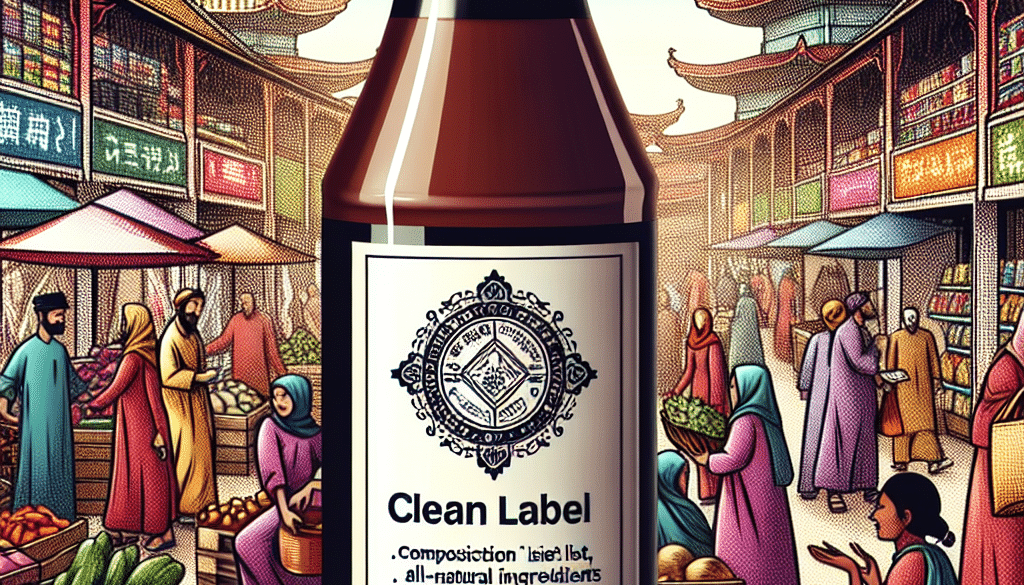In APMEA, Clean Label Goes Beyond Health
-
Table of Contents
- Clean Label in APMEA: More Than Just Health Benefits
- The Evolution of Clean Label in APMEA
- Consumer Drivers Behind the Clean Label Movement
- Case Studies: Success Stories in APMEA
- Challenges and Opportunities
- Statistical Insights into Clean Label Growth
- Conclusion: The Future of Clean Label in APMEA
- ETChem’s Protein Products: Meeting Clean Label Demands
Clean Label in APMEA: More Than Just Health Benefits

In the Asia Pacific, Middle East, and Africa (APMEA) region, the concept of clean label products has been gaining significant traction. However, the movement goes beyond just offering health benefits. Consumers in these diverse markets are increasingly demanding transparency, sustainability, and ethical sourcing in their food products. This article delves into the multifaceted nature of the clean label trend in APMEA and explores how it is reshaping the food industry.
The Evolution of Clean Label in APMEA
The clean label movement initially began as a push for food products free from artificial additives and preservatives. However, in APMEA, it has evolved to encompass a broader set of consumer expectations. These include:
- Ingredient simplicity and naturalness
- Non-GMO and organic ingredients
- Free-from allergens and intolerances
- Environmental sustainability
- Ethical sourcing and fair trade practices
As a result, clean label in APMEA is not just about health but also about the overall impact of food production and consumption on society and the environment.
Consumer Drivers Behind the Clean Label Movement
Several factors are driving the clean label movement in APMEA:
- Health Awareness: Rising health consciousness among consumers is a primary driver. People are more informed about the links between diet and health and are seeking products that contribute to their wellbeing.
- Food Safety Concerns: High-profile food safety scandals have made consumers wary of artificial additives and contaminants in their food.
- Environmental Concerns: There is a growing awareness of the environmental impact of food production, leading consumers to seek out products that are sustainably produced.
- Ethical Considerations: Issues such as animal welfare, fair labor practices, and support for local communities are increasingly important to consumers.
These drivers are shaping purchasing decisions and forcing food manufacturers to rethink their product formulations and marketing strategies.
Case Studies: Success Stories in APMEA
Several brands in the APMEA region have successfully capitalized on the clean label trend:
- India’s Organic Revolution: Organic India is a company that has built its brand around organic, non-GMO ingredients, and ethical sourcing practices. Their success is indicative of the growing market for clean label products in South Asia.
- Japan’s Natural Snacking: Calbee, a leading snack manufacturer in Japan, has seen success with its Frugra brand of granola, which emphasizes natural ingredients and health benefits.
- Middle East’s Dairy Innovation: Al Rawabi, a dairy company in the UAE, has introduced a range of products with no artificial hormones or preservatives, responding to consumer demand for cleaner dairy products.
These examples demonstrate that clean label strategies can lead to increased market share and consumer loyalty in the APMEA region.
Challenges and Opportunities
While the clean label movement presents significant opportunities, there are also challenges to overcome:
- Regulatory Hurdles: The APMEA region encompasses a wide range of regulatory environments, which can complicate clean label initiatives.
- Supply Chain Complexity: Ensuring a consistent supply of natural and organic ingredients can be challenging, especially in less developed markets.
- Cost Implications: Clean label products often come with higher production costs, which can be a barrier in price-sensitive markets.
Despite these challenges, the opportunities for growth in the clean label segment are substantial, as consumer demand continues to rise.
Statistical Insights into Clean Label Growth
Recent statistics highlight the growth potential for clean label products in APMEA:
- A study by Nielsen found that 75% of APAC consumers are willing to pay a premium for foods with health benefits.
- According to Mintel, 28% of food and drink launches in the Middle East and Africa in 2018 featured a ‘no additives/preservatives’ claim.
- Organic food sales in Asia are expected to grow by 25% between 2020 and 2022, as reported by Ecovia Intelligence.
These statistics underscore the significant market potential for clean label products in the region.
Conclusion: The Future of Clean Label in APMEA
The clean label movement in APMEA is about more than just health; it reflects a broader shift towards responsible consumption. As consumers become more discerning, the demand for products that are not only good for their health but also good for the planet and society at large will continue to grow. Food manufacturers that can meet these multifaceted consumer demands will be well-positioned for success in the APMEA markets.
ETChem’s Protein Products: Meeting Clean Label Demands
ETChem is well-equipped to support the clean label movement in APMEA with its range of protein products. Their offerings, including various types of collagen, are ideal for manufacturers looking to create products that align with the clean label ethos. ETChem’s commitment to quality, sustainability, and ethical sourcing makes them a valuable partner for businesses aiming to cater to health-conscious and environmentally aware consumers.
About ETChem:
ETChem, a reputable Chinese Collagen factory manufacturer and supplier, is renowned for producing, stocking, exporting, and delivering the highest quality collagens. They include marine collagen, fish collagen, bovine collagen, chicken collagen, type I collagen, type II collagen and type III collagen etc. Their offerings, characterized by a neutral taste, instant solubility attributes, cater to a diverse range of industries. They serve nutraceutical, pharmaceutical, cosmeceutical, veterinary, as well as food and beverage finished product distributors, traders, and manufacturers across Europe, USA, Canada, Australia, Thailand, Japan, Korea, Brazil, and Chile, among others.
ETChem specialization includes exporting and delivering tailor-made collagen powder and finished collagen nutritional supplements. Their extensive product range covers sectors like Food and Beverage, Sports Nutrition, Weight Management, Dietary Supplements, Health and Wellness Products, ensuring comprehensive solutions to meet all your protein needs.
As a trusted company by leading global food and beverage brands and Fortune 500 companies, ETChem reinforces China’s reputation in the global arena. For more information or to sample their products, please contact them and email karen(at)et-chem.com today.




